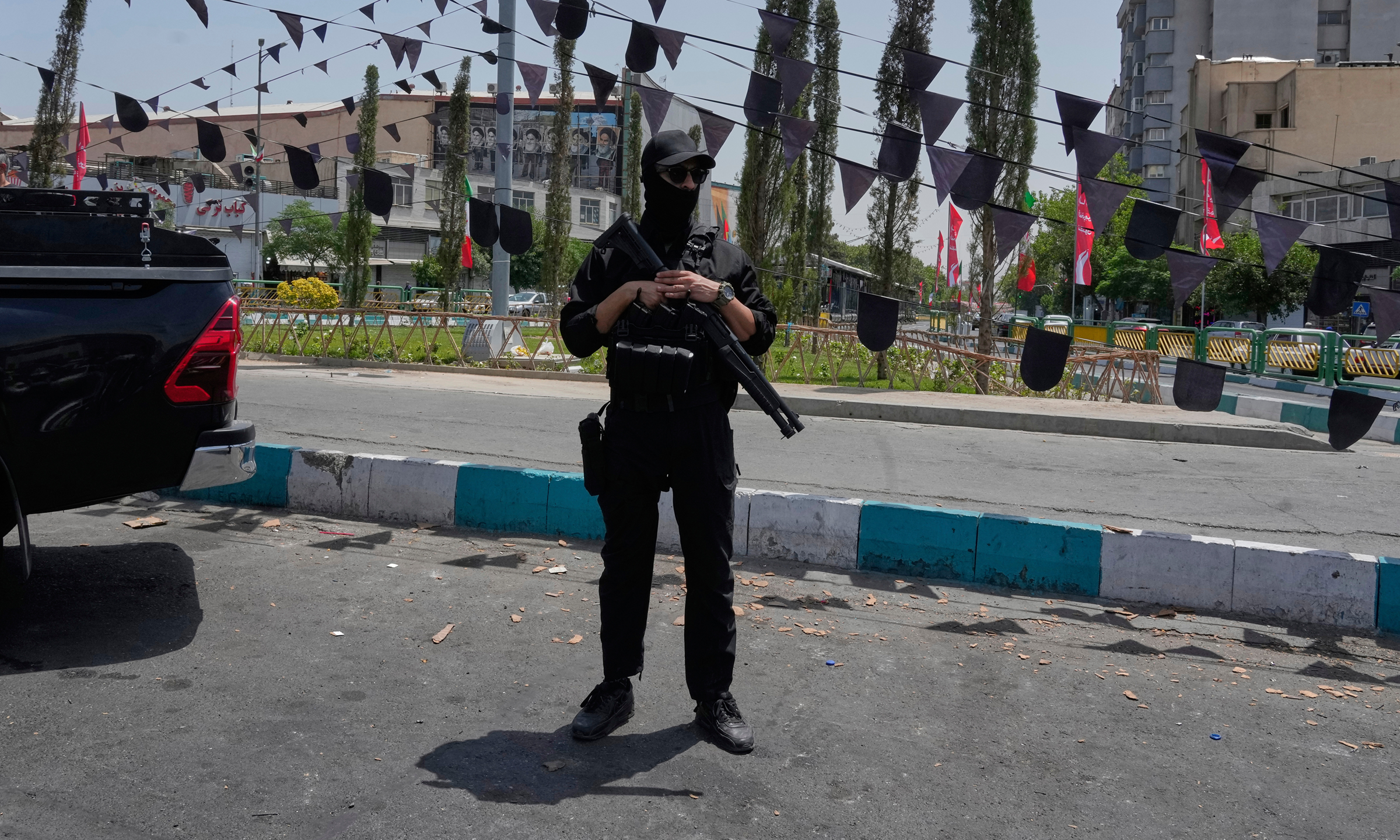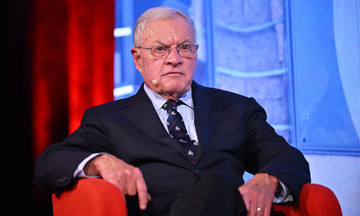Iran's Far News agency reported on 25/6 that Iranian security and counterintelligence forces arrested 700 alleged Israeli "mercenaries" during the 12-day conflict. "These mercenaries, primarily belonging to espionage and reconnaissance networks, were apprehended based on intelligence and counterintelligence activities," Iranian media stated.
Following Tel Aviv's launch of Operation "Rising Lion" on 13/6, the Israeli Institute for Intelligence and Special Operations (Mossad) confirmed that its agents in Iran participated in the operation, including preparing and executing drone strikes on targets within Iran.
International experts believe Mossad has cultivated an extensive spy network in Iran over decades, recruiting corrupt officials, nuclear scientists, and dissidents to provide intelligence and identify targets.
Mossad's espionage activities are believed to have caused significant damage to Iran, with several high-ranking generals and leading nuclear scientists reportedly targeted and killed in Israeli airstrikes.
Russian Lieutenant General Alexander Mikhailov described the coordinated operation between Mossad and the Israeli Air Force as "perfect," indicating the agency's deep penetration into Iranian society.
Following the initial shock, the Iranian Ministry of Intelligence (MOIS) and the Islamic Revolutionary Guard Corps (IRGC) were placed on high alert. According to South Front, Iranian security agencies urged citizens to report suspicious activities and issued guidelines for identifying individuals suspected of collaborating with foreign intelligence.
Citizen surveillance systems were fully utilized to detect unusual signs, from encrypted online communications to suspicious movements. Iranian security agencies also launched a large-scale operation, coordinating intelligence, military, and police forces to screen areas for Israeli spies.
In Kermanshah, Isfahan, and Khuzestan, areas heavily affected by Israeli airstrikes, Iranian security forces conducted surprise raids on locations suspected of being "underground bases" for Mossad operatives, including unmanned aerial vehicle (UAV) factories and alleged spy bases.
According to Tasnim, Iranian counterintelligence forces discovered a three-story building on the outskirts of Tehran on 15/6, allegedly used to produce UAVs and explosives for sabotage operations.
Iran utilized advanced surveillance technologies, including security camera systems, big data analytics software, and tools to intercept and infiltrate encrypted communications, to detect alleged Israeli agents.
By combining electronic surveillance with physical inspections in key areas, Iranian security forces reportedly discovered and seized approximately 10,000 UAVs in Tehran, allegedly deployed by Mossad agents to support Israeli airstrikes.
Iran also shut down the internet nationwide for over 24 hours starting on 19/6 to prevent alleged Mossad agents from communicating. This not only disrupted their operations but also limited their ability to contact their commanding officers in Israel.
According to Iranian media, among the over 700 individuals arrested were Iranian citizens and several foreigners, including a European citizen and an alleged Mossad agent.
The New York Times, citing sources, reported that those arrested also included individuals playing significant roles in Iran's nuclear program, including scientists and technicians accused of providing Mossad with information about nuclear facilities in Natanz, Fordow, and Isfahan.
In addition to field operations, Iran used media as a tool to amplify the impact of its counterintelligence campaigns. Numerous videos broadcast on Iranian national television showed security forces apprehending suspects and confiscating intelligence equipment.
According to South Front, these videos aimed not only to boost the morale of Iranian citizens but also to send a message to Israel that its spy network had been "exposed."
Iran also imposed harsh penalties on those accused of spying for Israel. According to Tasnim, at least three people were executed by hanging during the 12-day conflict, including Ismail Fekri, who was arrested in 12/2023 on charges of contacting two Mossad officers to provide classified information about Iran's military and nuclear programs.
On 16/6, after announcing the dismantling of a "secret bomb-making factory for UAVs" in the Rey suburb south of Tehran and the arrest of at least 28 people suspected of spying for Israel, Iranian authorities announced Fekri's execution by hanging.
Reuters sources indicate that those convicted of espionage in Iran often face swift trials with limited opportunities for appeal. The charges typically include "gathering classified information," "sabotaging infrastructure," and "collaborating with the enemy."
"Iran's swift use of the death penalty shows its desire to send a strong message both domestically and internationally," said Anas Alhajji of Energy Outlook Advisors.
Meanwhile, Ellen Wald of the Atlantic Council suggested that Iran's public disclosure of arrests and executions is a psychological warfare tactic, aimed at undermining Israel's confidence in its spy network and reassuring the Iranian public.
 |
Members of the Islamic Revolutionary Guard stand guard in Tehran, Iran, on 24/6. Photo: AP |
However, observers believe that Iran's crackdown is unlikely to completely dismantle the spy network Israel has built over decades, with some agents deeply embedded within Iran's political and military systems.
Ali Younesi, former Iranian intelligence minister, warned in 2021 that "over the past decade, Israel's Mossad intelligence agency has infiltrated every structure of the government to the extent that every Iranian official now fears for their life."
According to Ali Vaez of the International Crisis Group, Iran's claim of arresting 700 people in just 12 days suggests they are "casting a wide net." "This reflects Tehran's panic over the possibility that Israeli intelligence has deep roots in their system," Vaez said.
The large-scale raids and public disclosure of information on television could also escalate internal tensions within Iran, exacerbating divisions among different segments of society.
"Iran's crackdown demonstrates close coordination among its security agencies and its ability to leverage community intelligence resources. However, the arrest of a large number of people in a short period raises questions about the accuracy of the espionage accusations," warned military expert Sanjib Kr Baruah.
Phong Lam (According to Reuters, Al Jazeera, New York Times, Izvestia)












